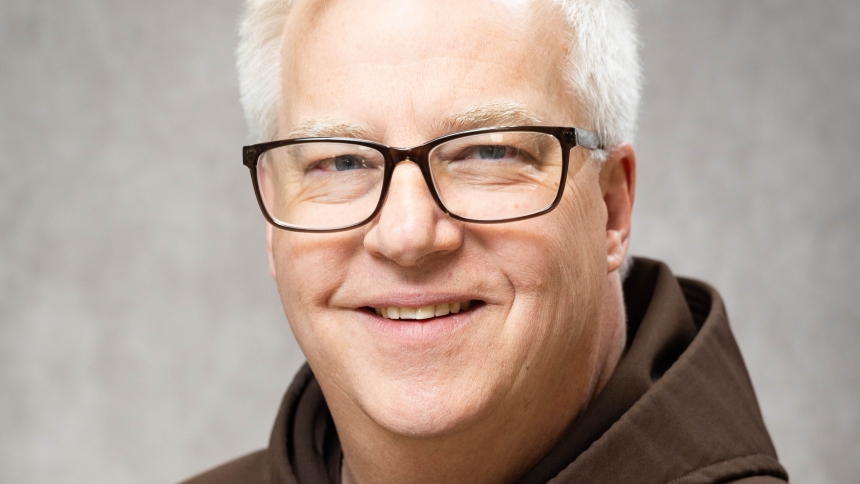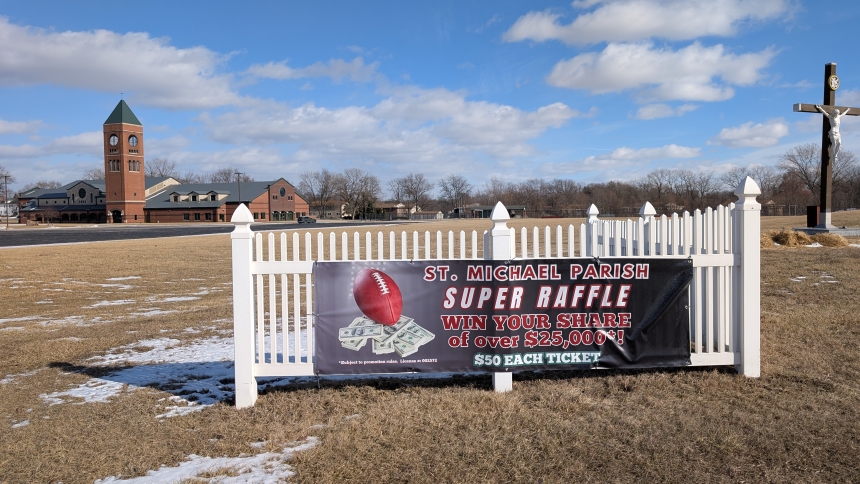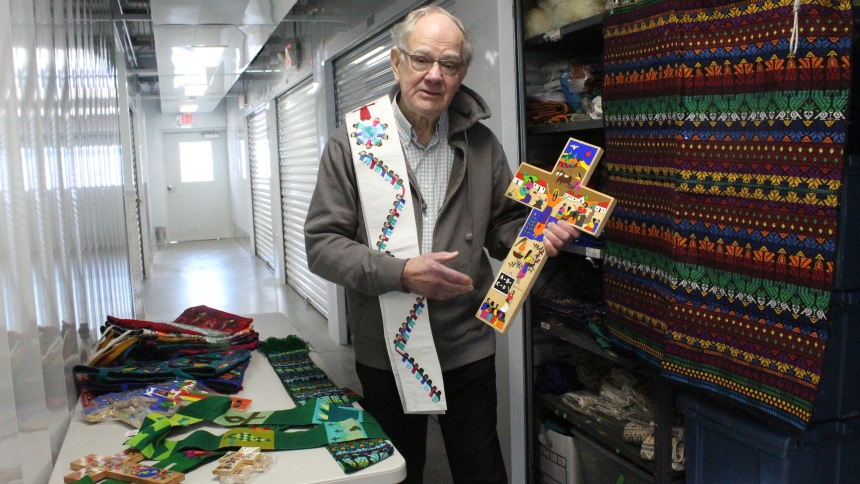
This year, the Franciscans celebrate the 800th anniversary of the composition of St. Francis’ Canticle of the Creatures.
As we approach the Feast of the Stigmata of St. Francis of Assisi, celebrated on Sept.17, we note its special connection to the Canticle of the Creatures, which St. Francis wrote toward the end of his life, when he was in great suffering.
Beyond the stigmata, St. Francis had diseases that tormented him. As an example, he had an eye disease that was so awful that they cauterized his eyes. When he wrote this beautiful poem, he was greatly suffering from disease and complications from the stigmata.
St. Francis acquired the stigmata while he was praying on Mount La Verna in Italy. He had a real desire to be like Jesus in every way. That was his great motivation. Jesus was poor; St. Francis was poor. Jesus wandered; Francis wandered. So, he prayed that the Lord would let him experience everything that the Lord himself experienced. In response, Francis received a vision of the seraph, a special kind of angel, who branded him with the marks of Jesus's wounds. These imprints on his hands and feet looked like they were made by nails. St. Francis carried the wounds of Christ on his body. He tried hiding it out of humility, but some of the other friars knew.
The stigmata are a reminder that if we want to conform ourselves fully to Christ, we have to be ready to embrace suffering. St. Francis certainly did. He bore those wounds in himself.
It was while he was suffering from multiple illnesses and the stigmata that St. Francis wrote the Canticle of the Creatures, and it's remarkable. The Canticle of the Creatures is the first known poem written in the Italian language. It's so well written that certain scholars of literature began to call him the Father of the Italian Renaissance because he composed this poetry in his native language. St. Francis composes this beautiful prayer — praising God, who's revealed to us in everything — while he is horribly in pain.
To me, it's just amazing that we have this kind of witness in St. Francis. He showed us that even in the midst of awful pain, God is still present to us. God is probably closer to us when we suffer than when we're not, and that is a very Franciscan understanding. God is present to us in our personal poverty and among the poor.
Sometimes when we talk about God‘s blessings, we'll often mention how God has blessed us: “I'm healthy,” “I've got a home,” “I have people who love me.” Those are wonderful blessings. But St. Francis says God is also blessing us when things are hard. When it looks like a situation is not much of a blessing at all, that’s when our faith is called into action.
Our faith takes on a certain character when we can recognize that God blesses us both when things are great and when they are not great. God never wants us to suffer. But when we are suffering, God is present to us in a very powerful way.
When St. Francis was suffering from the heavy burdens of illnesses, he was keenly aware that God was with him. I think this is a really good lesson. God doesn’t desire for us to suffer. We never want to say, “God wanted me to suffer to teach me a lesson.” That's not how we should view suffering. Instead, we want to say, “I'm suffering, and God is with me.”
If you have ever been sick and had to be isolated or go to the hospital, one of the things that is the most difficult about that situation is the sense that you’re alone and nobody really understands what it is you're going through. People may say they know how you feel, but it’s easy to question how they can truly know.
There is a sense of loneliness in suffering. We may start to wonder, “What is Christ doing about my suffering?” Sometimes the answer isn't that He ends the suffering, but that He lets you know that He's with you in the midst of it, and that you're not alone. He understands what you're going through, even if nobody else does.
We can feel very, very close to God when we're suffering, because he is very close to us during those times. He wants us to know that He loves us. That we're not alone. This is a Franciscan understanding of suffering.
When St. Francis was tormented, enduring his physical suffering, God was so very close to him. That's the mystery of the stigmata. And in the midst of that suffering is when he writes this beautiful praise of God, seeing Him in creatures and everything that exists.
Father Mike Surufka, O.F.M., is the rector and pastor of the Cathedral of the Holy Angels in Gary. He also serves as pastor of Ss. Monica and Luke, St. Joseph the Worker and St. Mary of the Lake also in Gary.
The Canticle of the Creatures by St. Francis of Assisi
Most High, all-powerful, good Lord,
Yours are the praises, the glory, the honor, and all blessing.
To You alone, Most High, do they belong,
and no human is worthy to mention Your name.
Praised be You, my Lord, with all Your creatures,
especially Sir Brother Sun,
Who is the day and through whom You give us light.
And he is beautiful and radiant with great splendor;
and bears a likeness of You, Most High One.
Praised be You, my Lord, through Sister Moon and the stars,
in heaven You formed them clear and precious and beautiful.
Praised be You, my Lord, through Brother Wind,
and through the air, cloudy and serene,
and every kind of weather,
through which You give sustenance to Your creatures.
Praised be You, my Lord, through Sister Water, who is very useful and humble
and precious and chaste.
Praised be You, my Lord, through Brother Fire,
through whom You light the night
and he is beautiful and playful and robust and strong.
Praised be You, my Lord, through our Sister Mother Earth,
who sustains and governs us,
and who produces varied fruits with colored flowers and herbs.
Praised be You, my Lord, through those who
give pardon for Your love,
and bear infirmity and tribulation.
Blessed are those who endure in peace
for by You, Most High, shall they be crowned.
Praised be You, my Lord, through our Sister Bodily Death,
from whom no one living can escape.
Woe to those who die in mortal sin.
Blessed are those whom death will find in Your most holy will,
for the second death shall do them no harm.
Praise and bless my Lord and give Him thanks
and serve Him with great humility.



